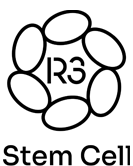NK For Cancer
Gastric Cancer
Natural KILLER CELL THERAPY
R3 Stem Cell Clinical Protocol with Natural Killer Cells for Gastric (Stomach) Cancer

Gastric cancer is one of the most common tumors of the digestive tract and one of the most frequent cancers in terms of cancer-related morbidity and mortality worldwide.
According to the most recent statistics, gastric (stomach) cancer is the fourth most common cancer worldwide and the second most common cause of cancer death. The treatment of gastric (stomach) cancer includes major modalities such as radical resection, adjuvant chemotherapy, palliative care and drug therapy.
As in all cases of tumor, the appearance of GC is related to various factors, from dietary conditions to family genetic factors, through bacterial infections, polyp lesions or gastric ulcers among many others.
The individual's immune system plays an important role in the control and elimination of gastric cancer; however, evasion mechanisms by GC have been described. The secretion of components that cause the suppression of the activity of the cells of the immune system and the hiding of surface molecules that make it go unnoticed are the two main mechanisms used to evade its elimination.
Natural Killer cells are part of the innate immune system and specialize in the elimination of tumor cells and cells infected by viruses. Various studies have shown that defects in the functionality or low number of NK cells are related to a higher incidence of tumors and metastasis.
The two best described mechanisms by which NK cells eliminate tumor cells are:
1) Directly by encountering the target cells and releasing their cytotoxic granules;
2) Through the secretion of cytokines that attract the rest of the cells of the immune system to the injury site.
NK Cells and their Role in Stomach Cancer
Natural killer cells as a prognostic factor
Recommended treatment scheme
The general Natural Killer Cell treatment regimen starts at 2-5 million per kilogram, but it directly depends on the patient’s general condition and the stage of progression.
Thus, the following scheme represents a basic treatment for an initial/intermediate stage.
- 3 applications (100 million) of Natural Killer cells
- Weekly application of 100 million cells for three weeks, or three treatments over 5 days (every other day).
Selection and application of NK cell immunotherapy
Once the patient’s complete medical history and review have been completed, and the therapeutic regimen has been determined, the informed consent letter is provided to be signed and an appointment is provided to begin the therapy.
Application process
- The application appointment takes place in the doctor’s office, where the patient is invited to take a comfortable position and the IV is placed in the arm.
- The drip is regulated to deliver 100 mL of saline solution in 30-40 minutes.
- Once the dose is finished, the IV equipment is removed.
- The patient is left to rest and under medical observation for 20 minutes.
Adverse Effects
Regimes of 2-5 million cells per kg have occasionally occurred
- Low-grade fever
- Headache
- Fatigue
- Dizziness
Follow-up:
R3 recommends to perform laboratory and office tests within 10 days of completing the first application regimen, or at least 2 months after the first application.
R3 Stem Cell offers Natural Killer Cell therapy for gastric (stomach) cancer as an adjuvant treatment to traditional options.
Treatments are offered in R3’s clinics in Tijuana Mexico and Islamabad Pakistan. Call today for your free consultation at +1 (844) 438-7836.
Bibliography
Ma, S., Li, L., Yin, J., Wang, X., Yang, C., Zhang, L., … Cai, H. (2023). Advances in Natural Killer Cells and Immunotherapy for Gastric Cancer. IntechOpen. doi: 10.5772/intechopen.109695
Sukri A, Hanafiah A, Kosai NR. The Roles of Immune Cells in Gastric Cancer: Anti-Cancer or Pro-Cancer?. Cancers (Basel). 2022;14(16):3922. Published 2022 Aug 14. doi:10.3390/cancers14163922
Ishigami S, Natsugoe S, Tokuda K, et al. Prognostic value of intratumoral natural killer cells in gastric carcinoma. Cancer. 2000;88(3):577-583.
Takeuchi H, Maehara Y, Tokunaga E, Koga T, Kakeji Y, Sugimachi K. Prognostic significance of natural killer cell activity in patients with gastric carcinoma: a multivariate analysis. Am J Gastroenterol. 2001;96(2):574-578. doi:10.1111/j.1572-0241.2001.03535.x
Li T, Zhang Q, Jiang Y, et al. Gastric cancer cells inhibit natural killer cell proliferation and induce apoptosis via prostaglandin E2. Oncoimmunology. 2015;5(2):e1069936. Published 2015 Aug 12. doi:10.1080/2162402X.2015.1069936
Wang F, Lau JKC, Yu J. The role of natural killer cell in gastrointestinal cancer: killer or helper. Oncogene. 2021;40(4):717-730. doi:10.1038/s41388-020-01561-z
